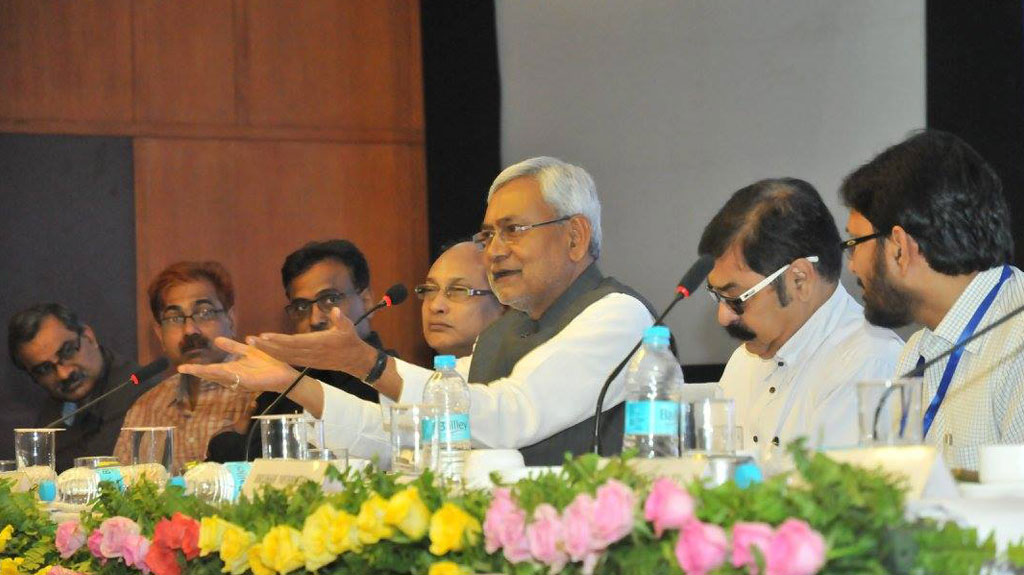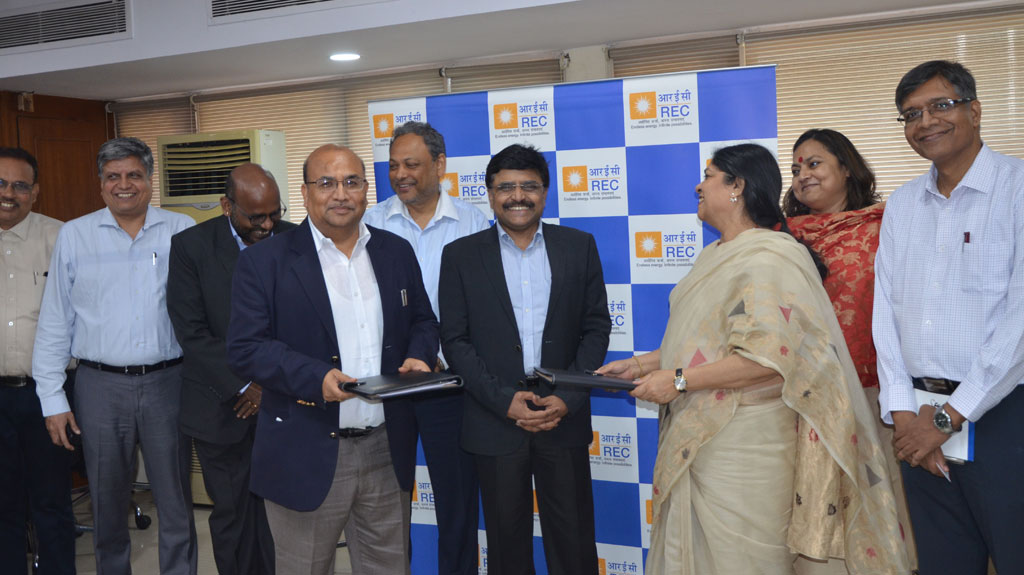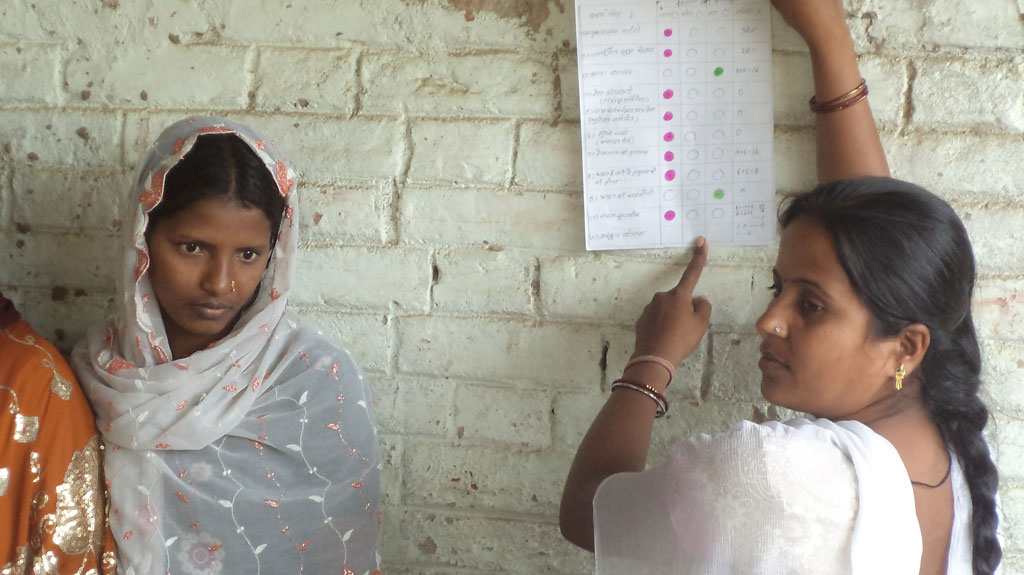About Us
50 Years of Population Foundation of India
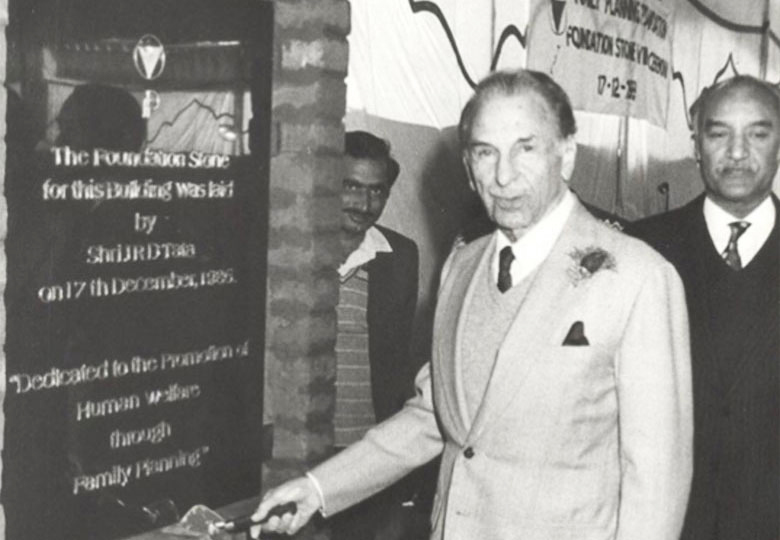
In the first decade, Family Planning Foundation (FPF), focused on research and building knowledge on India’s changing demographics to support policymaking and programme planning. The organisation’s objective was to promote family planning as a means of economic and social well-being of the family. Significant progress was made in biomedical research, with focus on contraception for women, and also men.
FPF used communication such as publications, seminars and films to engage with and inform policy makers and political leaders. In 1978, FPF produced a National Award-winning film ‘Parvati’ to highlight the benefits of family planning.

Family Planning Foundation brought attention towards an integrated approach to family planning – focusing on reducing infant and maternal mortality. Ensuring people’s rights to sexual and reproductive health and choices were part of the new discourse.
The organisation continued to expand knowledge on family planning through a five-state diagnostic research study on population growth and development. Studies on implications of infant mortality on fertility rates, and a report on benefits of incentives were also commissioned.
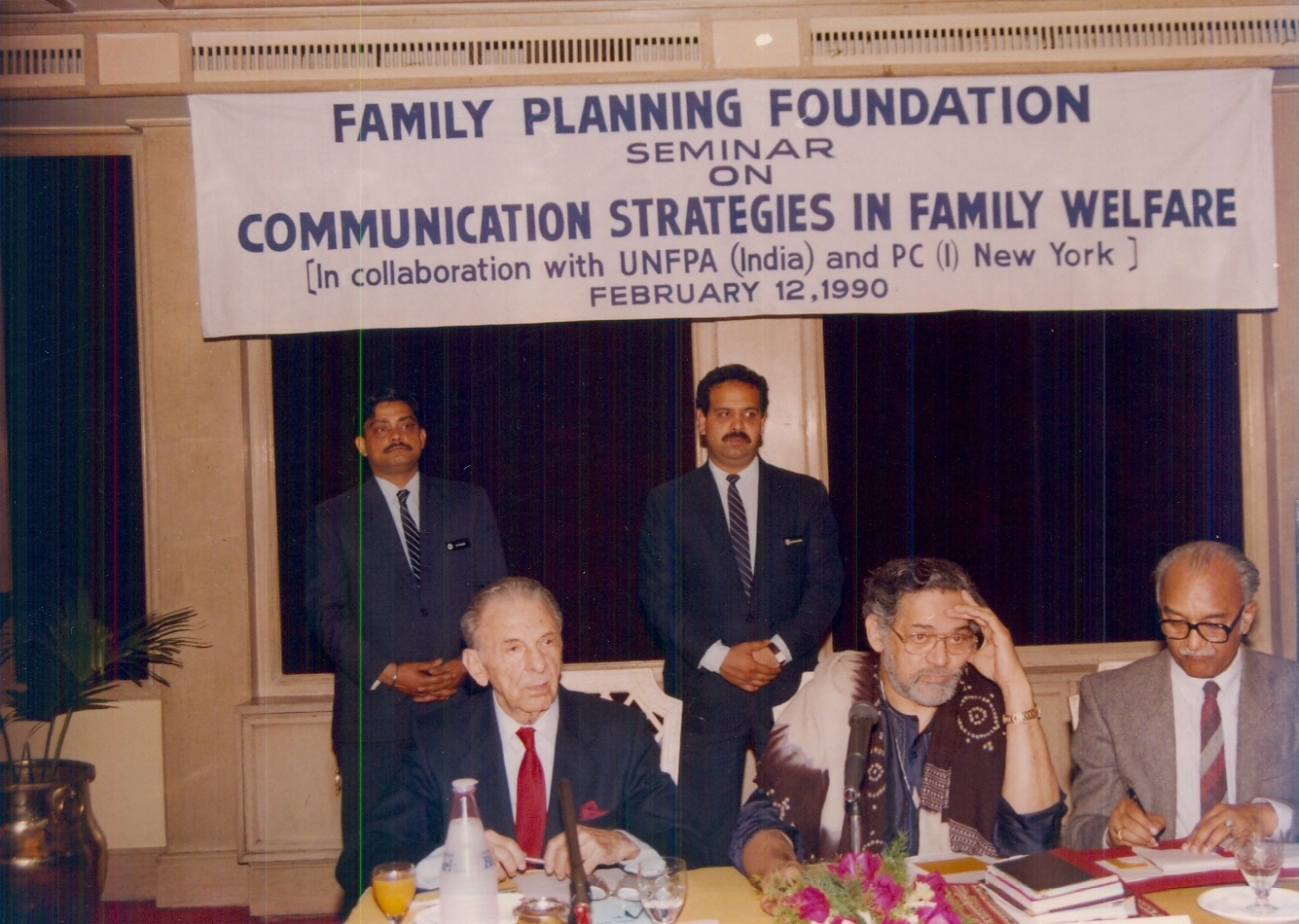
Family Planning Foundation became Population Foundation of India in 1993 in keeping with its changing mission, from supporting a reduction in population growth to actively championing improvement in quality of life for India’s people.
JRD Tata, founder of Population Foundation of India was conferred the prestigious UN Population Award in 1992 in recognition of his work on the issue of population and development. The JRD Tata Memorial Awards and Oration was instituted in 1993 in memory of our founder. The Awards are given for the best performing states and districts in the field of reproductive health, while the Oration is a lecture series on population issues.
Population Foundation of India pushed for increasing allocations for population stabilisation, focusing on health and education, and a renewed look at India’s north-eastern states. The organisation advocated a life cycle approach to family planning for sustainable social development. We were also responsible for training panchayat (village self-governance institution) representatives on issues of reproductive health and family planning.
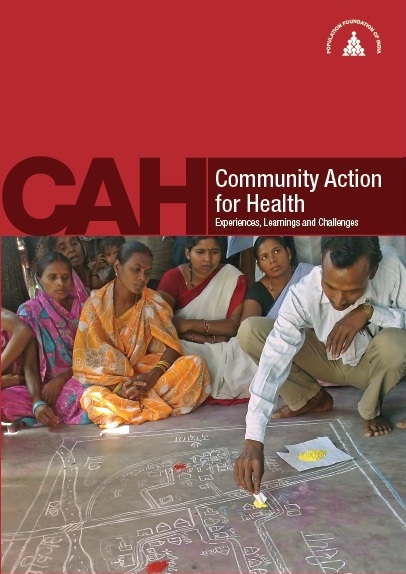
In the first decade of the 2000s, Population Foundation of India grew in its scope – there was increasing interface with the government and an expanded reach across the country. Population Foundation of India played a crucial role in the formulation of the national and state level population policies, especially in Madhya Pradesh and Uttar Pradesh.
In response to new realities, Population Foundation of India’s work was expanded to include gender, HIV/AIDS, urban health and scaling up. In 2004, for the first time, the organisation moved to implementation in the district and lower levels through advocacy and communication on issues of missing girls, quality of care in reproductive health services and law, policy and rights. In 2005 the government set up the Advisory Group on Community Action (AGCA) to support and advise the Ministry of Health and Family Welfare (MoHFW) on community monitoring under the National Rural Health Mission. The secretariat of the AGCA was housed in PFI and continues to be so even today.
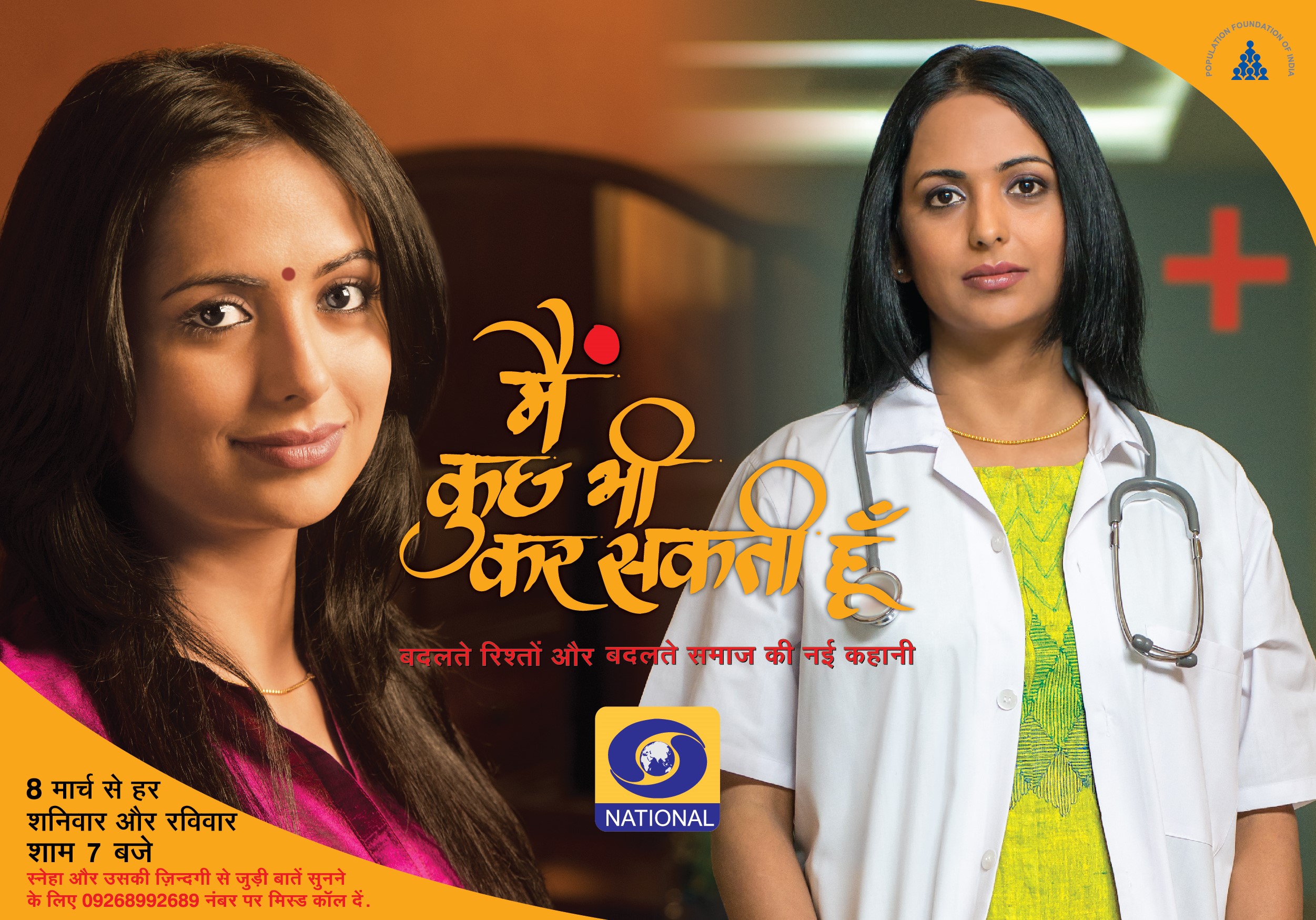
Family planning was now widely recognised as a function of overall social development, no longer limited only to population stabilisation. PFI began to address population issues within the larger discourse of health and rights of women.
Population Foundation of India’s focused engagement with policymakers in the wake of the maternal deaths in Barwani in 2010 and sterilisation deaths in Bilaspur in 2014 also showcased its evidence-based advocacy. Population Foundation of India moved towards using new approaches like entertainment education and outreach with communities to further positively influence people, launching its flagship transmedia initiative Main Kuch Bhi Kar Sakti Hoon (MKBKSH – I, A Woman, Can Achieve Anything) in 2014.
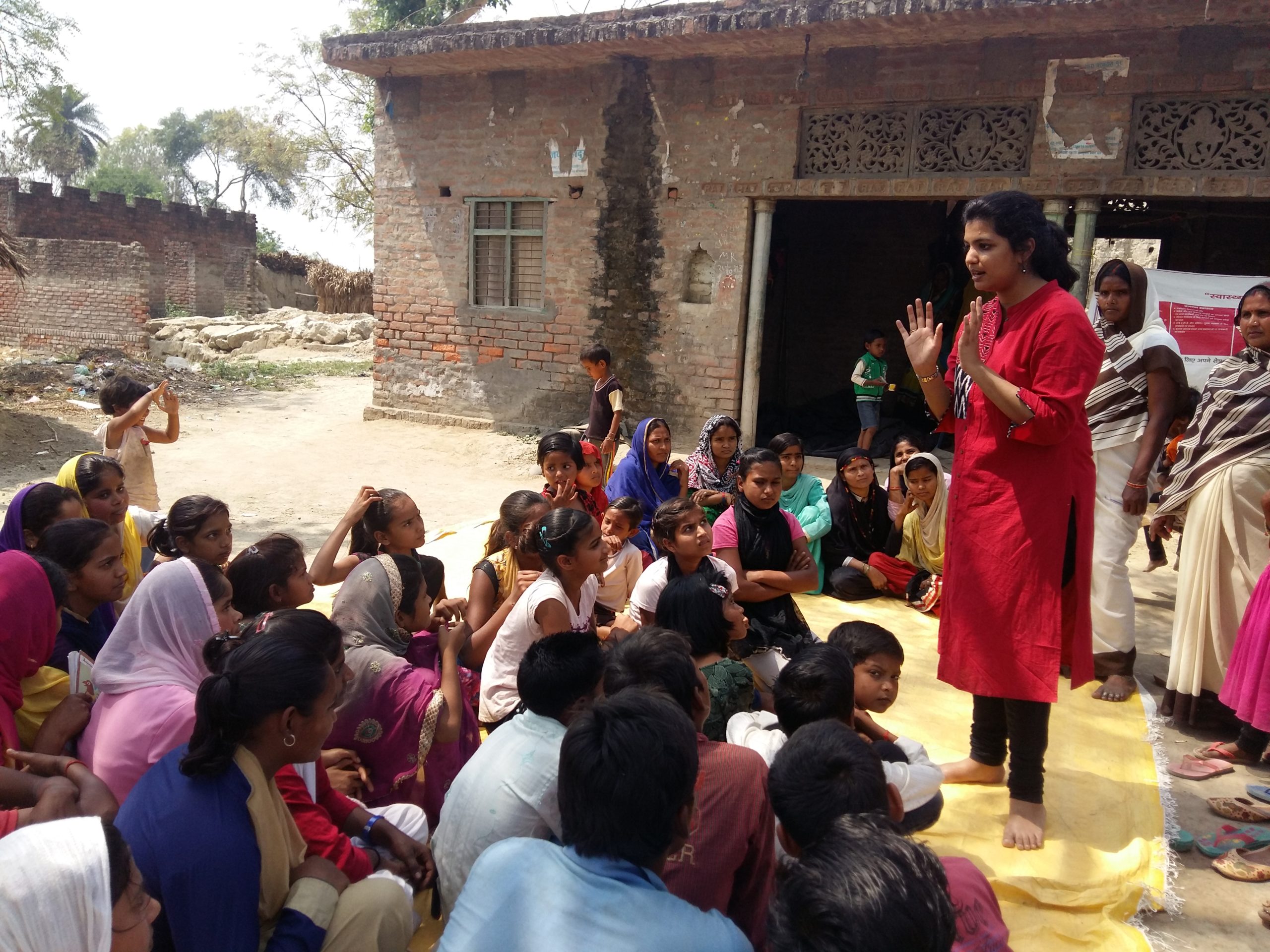
Today, Population Foundation of India works at the individual, social and policy level to create an enabling policy environment for girls and women to claim their rights, young people to be involved in demanding and supporting efficient and accountable governance, and informed policymakers. We work closely with national and state governments to support and strengthen our national plans and programmes.
There is a renewed focus on the needs and aspirations of young people, recognising that providing them with information to make correct decisions regarding their health and wellbeing is critical. The social and behaviour change communication programmes at Population Foundation of India use innovative technology, including an artificial intelligence-enabled chatbot, to reach young people and women in entertaining and informative ways.
Our People
- Team
- Advisory Council
- Governing Board
 Raam Kumar
Raam KumarChief Finance Officer, Delhi
Raam Kumar is Chief Financial Officer at Population Foundation of India. He manages Finance, Administration, Information Technology and Program Operations portfolio at Population Foundation. He comes with a strong 30 years of experience in the field of controlling and reviewing financial data, planning, monitoring internal controls, human resources, managing audits, administration and operations. He has worked across the public sector, private sector and development sector, with the last 20 years as Head of Finance. Prior to joining Population Foundation, he worked as Chief Finance Officer at Rajiv Gandhi Charitable Trust and before that as Director-Finance at Encyclopaedia Britannica India (Pvt.) Ltd. He is a Fellow Chartered Accountant and has done Masters in Business Administration.
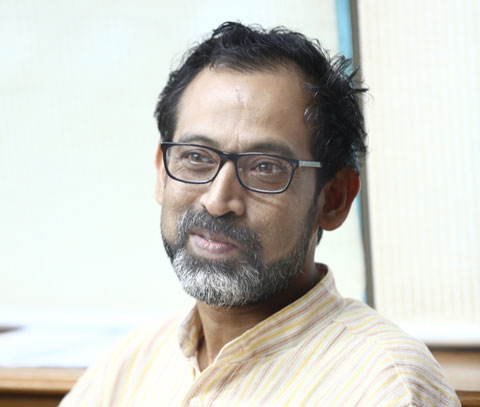 Bijit Roy
Bijit RoySenior Lead - Programmes
Bijit Roy has over 20 years of experience in planning, implementation and management of large scale nutrition, maternal and child health and HIV/AIDS programmes.
At Population Foundation of India, Bijit leads community action and accountability vertical. as the Associate Director- Community Action and Accountability. Population Foundation of India hosts the Secretariat of the Advisory Group on Community Action (AGCA), a committee constituted by the Ministry of Health and Family Welfare (MoHFW) under the National Rural Health Mission (NRHM) to provide guidance and technical support to the state governments to strengthen and scale up community action processes initiatives, particularly related to accountability. The initiative covers 353 districts, 68 cities across 23 states of India. Bijit has previously worked at CARE in the Policy and Advocacy Unit at the India Country Office and managed implementation of the Reproductive and Child Health, Nutrition and HIV/AIDS (RACHNA) programme in the states of Chhattisgarh and Madhya Pradesh.
He holds a Post Graduate Diploma in Rural Development from Xavier Institute of Social Service, Ranchi and a Bachelor degree in Political Science from the Banaras Hindu University.
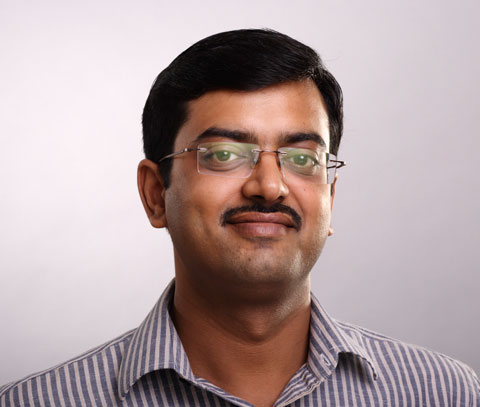 Gagan Singhal
Gagan SinghalSenior Manager- Human Resources & Administration
Gagan Singhal is an HR & Administration professional with over 22 years of experience in the non-profit sector. He holds a Master’s Degree in Commerce and a Post Graduate Diploma in Business Administration with a specialization in Human Resource Management. Gagan has extensive expertise in office administration and management, complemented by a fair understanding of IT systems for office environments.
Before joining the Population Foundation of India, Gagan served as Coordinator – Administration & IT at WaterAid India, Correspondent Administration & Publication at Rotary International South Asia Office, and Administrative Assistant at the National Polio Surveillance Project of the World Health Organization. Throughout his career, he has developed a deep understanding of the unique challenges and opportunities within the non-profit sector and is well-versed in working within multi-cultural organizational environments. Gagan’s diverse skill set and experience make him a valuable asset in driving operational excellence and fostering a collaborative workplace culture.
 Alok Vajpeyi
Alok VajpeyiLead - Core Grants & Knowledge Management
Alok is an experienced Development Professional, M&E Specialist and Researcher with progressive experience in evidence based development. Alok has worked with national and international organizations and has specialization in evaluation design, planning, implementation, and use in multiple contexts and domains. Alok was member of Family Planning 2020 (FP2020) Performance Monitoring and Evaluation Working Group (PME WG) for 2016-18. Alok has led several international and national level research studies, reviews and evaluations. Alok was actively involved in drafting of revised State Population Policy in Uttar Pradesh in 2016 and National ICT in Education policy for Ministry of HRD, GOI in 2007. He has also led the process of Bihar Population Policy Development in collaboration with State Health Society, Bihar in late 2019.
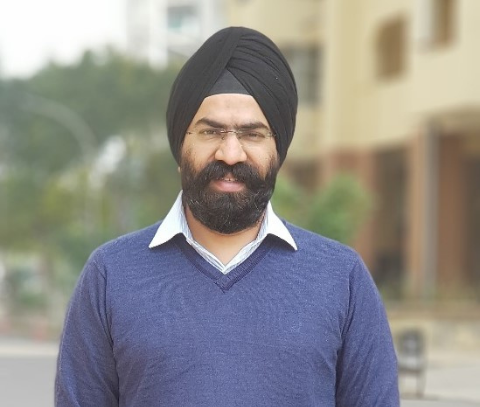 Tejwinder Singh Anand
Tejwinder Singh AnandLead - Technology & Communications
Tejwinder is a communication professional with over 17 years of work experience in the areas of brand strategy, marketing communication, and digital marketing. He has worked with brands on high impact campaigns across profit & non-profit sectors, BFSI and consumer electronics.
An engineering and management graduate, Tejwinder is stepping up for people by building communication to amplify the reach of initiatives and programmes at the Population Foundation of India.
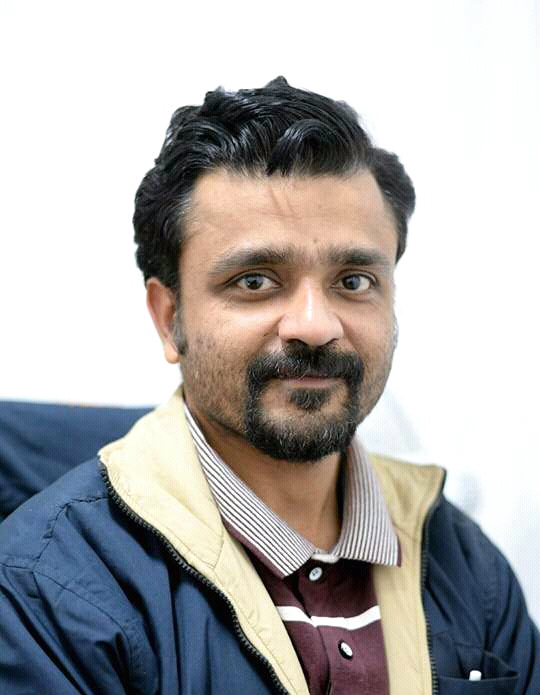 Amol Nakve
Amol NakveManager Human Resources
Amol had been a part of the development sector and gained knowledge and experience within the sector with over 13 years of extensive experience in Human Resource Management.
Previously, Amol has associated NASSCOM Foundation, Husys Consulting and Basix. Amol has an MBA in HRM from Premium B School (PUMBA), University of Pune and B.Sc in Biotechnology from North Maharashtra University. He is a keen traveler and voracious reader and is genuinely acknowledged as a passionate photographer. He likes to interact with people having different socio-economic backgrounds. He believes in Human potential and possibilities.
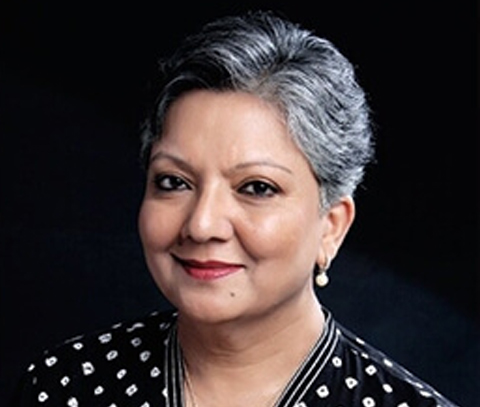 Ms Srilatha Batliwala
Ms Srilatha BatliwalaChairperson, Advisory Council
Ms Srilatha Batliwala, a social activist, advocate of women’s rights, scholar, and author of many books on empowerment of women is from Bengaluru. She graduated from the Tata Institute of Social Sciences, Mumbai with a Master of Arts degree in Social Work. She has been engaged in promoting the feminist movement, building leadership qualities in women, monitoring and assessing gender sensitive issues, and creating a pool of women activists. She was instrumental in establishing four institutions and two grassroots-level feminist campaigns.
Ms Batliwala has worked for various international institutions, such as the Ford Foundation in New York, the Hauser Center for Nonprofit Organizations at Harvard University and has been Chair of the Board of the Women’s Environment and Development Organization (WEDO). Ms Batliwala is actively involved in many organisations dealing with women’s rights – she is Scholar Associate with the Association for Women’s Rights in Development (AWID), Co-Chair of the board of ‘Gender at Work’ (a global network of women), and member of the board of Samudaya Nirman Sahayak and IT for Change (SPARC) in Mumbai, founded in 1984 to facilitate urban poor to take part in development works of the community. She has many publications to her credit and is a Fellow, Women’s Policy Research, and Advocacy at the National Institute of Advanced Studies in Bengaluru.
 Dr Leela Visaria
Dr Leela VisariaDr Leela Visaria is Honorary Professor and former Director, Gujarat Institute of Development Research, Ahmedabad. A Princeton University-trained demographer, her research interests include historical demography as well as field-based studies on health, family planning, education, and demographic transition. She has authored several peer-reviewed articles and has co-authored and/or edited six books including Twenty-first Century India: Population, Economy, Human Development and the Environment (2004) and Abortion in India: Ground Realities (2007). Between 1994 and 2008, she served as a coordinator of HealthWatch, a network of non-governmental organisations (NGOs) and researchers that engaged in dialogue with policymakers, donors, researchers and activists on gender sensitive population and health policy issues. In March 2008, she was awarded a two-year national professorship by the Indian Council for Social Science Research, a parent body of all social science research institutes in India. She was the first President-elect of the Asian Population Association (2009–10).
 Dr Saroj Pachauri
Dr Saroj PachauriDr Saroj Pachauri, MD, PhD, DPH is a Population Council Distinguished Scholar. She joined the Population Council in 1995 as Regional Director, South and East Asia, and established the Council’s regional office in New Delhi. Prior to joining the Council, Dr Pachauri worked with the Ford Foundation, where she developed the Foundation’s child survival and reproductive health programmes. She initiated work on HIV and AIDS when there was little acknowledgement of the problem in India and no government programme was in place. From 1971 to 1983, Dr Pachauri worked with Family Health International and conducted research on international health issues, especially clinical trials on fertility control technologies.
She has published extensively on family planning, maternal and child health, sexual and reproductive health, HIV/AIDS, adolescents, and reproductive tract infections, played a major role in influencing policy and been a board member of numerous national and international organisations. An awardee of the Grant’s Gold Medal at the University of Calcutta, Dr Pachauri specialised in community medicine.
 Professor Suneeta Mittal
Professor Suneeta MittalProfessor Suneeta Mittal is a renowned name in the field of Obstetrics and Gynaecology, having a wide experience of more than 37 years. Currently Director and Head of Department (HoD), Fortis Memorial Research Institute, Gurgaon, she has done pathbreaking national and international research in women’s health, leading to the introduction of emergency contraception and medical abortion in India. She has been the Professor and Head, Department of Obstetrics and Gynaecology at the prestigious All India Institute of Medical Science (AIIMS), New Delhi and worked with the Ministry of Health and Family Welfare of Government of India, the World Bank, the United Nations Population Fund (UNFPA), World Health Organization (WHO), Swedish International Development Agency (SIDA) and the National Institute of Health and Family Welfare (NIHFW). Her areas of expertise are infertility, Endocrinological Disorders, Adolescent Reproductive Health, Laparoscopic and Hysteroscopy surgeries and High-Risk Pregnancies.
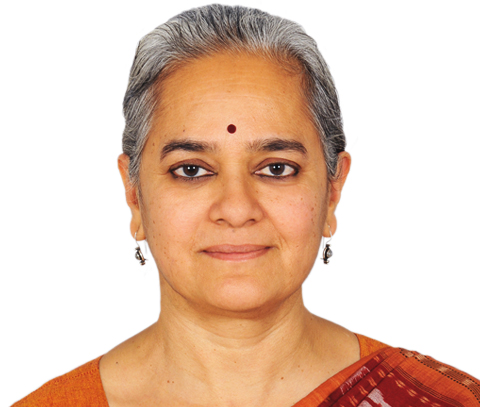 Dr Mirai Chatterjee
Dr Mirai Chatterjee Dr Mirai Chatterjee is an Indian social worker who works at the Self-Employed Women’s Association, SEWA in Ahmedabad. She was appointed a member of National Advisory Council in 2010.
Dr Chatterjee is the Director of Social Security at SEWA. She is responsible for SEWA’s Health Care, Child Care and Insurance programmes. She is currently Chairperson of the National Insurance VimoSEWA Cooperative Ltd and of LokSwasthya health cooperative, both promoted by SEWA. She joined SEWA in 1984 and was its General Secretary after its Founder, Ela Bhatt. Dr Chatterjee has served on the Boards of several organisations in India, including the Friends of Women’s World Banking (FWWB), and the Public Health Foundation of India (PHFI). She was advisor to the National Commission for Enterprises in the Unorganised Sector and is in the Advisory Group of the National Rural Health Mission. She was also a Commissioner in the World Health Organization’s Commission on the Social Determinants of Health.
Dr Chatterjee has a B.A. from Harvard University in History and Science and a Masters from Johns Hopkins Bloomberg School of Public Health, U.S.A.
 Mr Sanjoy Hazarika
Mr Sanjoy HazarikaMr Sanjoy Hazarika is a human rights activist recognised internationally for designing and developing innovative strategies for inclusive health and governance. He is also a scholar, author, journalist and film maker, and currently the Director of Commonwealth Human Rights Initiative (CHRI). Prior to this, he was honorary research professor at the Centre for Policy Research. Mr Hazarika held the Dr Saifuddin Kitchlew Chair at Jamia Millia Islamia, New Delhi, where he also directed the Centre for North East Studies and Policy Research of which he is a founder. He has been a member of various academic organisations and official committees, including the Justice Jeevan Reddy Committee to Review the Armed Forces Special Powers Act (AFSPA), the Society of Indian Institute of Advanced Studies, Shimla, and the North East India Studies Programme at Jawaharlal Nehru University
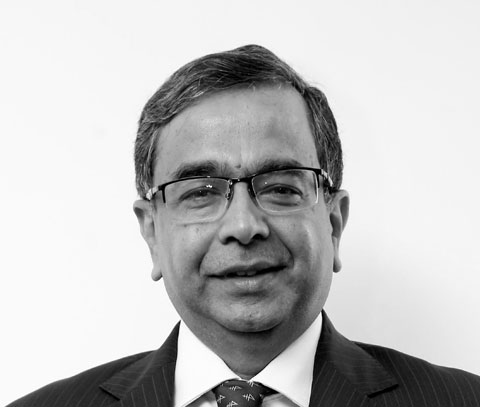 Professor K Srinath Reddy
Professor K Srinath ReddyChairperson
Professor K. Srinath Reddy is the President of the Public Health Foundation of India and past President of the World Heart Federation. He chaired the High Level Expert Group on Universal Health Coverage, set up by the Planning Commission of India. He has also served as the President of the National Board of Examinations which deals with post-graduate medical education in India. He is the first Bernard Lown Visiting Professor of Cardiovascular Health at the Harvard School of Public Health.
Earlier, Professor Reddy served as the Head of the Cardiology department at the All India Institute of Medical Sciences, New Delhi. He is a global leader in preventive cardiology and has provided instrumental direction to strengthening training, research and policy development in the area of public health.
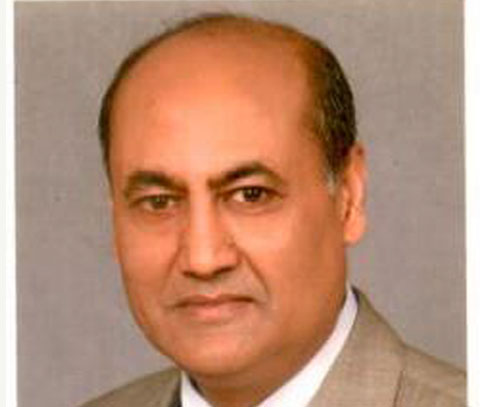 Mr Rajya Vardhan Kanoria
Mr Rajya Vardhan KanoriaVice Chairperson
Mr R V Kanoria is the Chairman & Managing Director of Kanoria Chemicals & Industries Ltd. He has been President, Federation of Indian Chambers of Commerce and Industry (FICCI) and has chaired the Confederation of Indian Textile Industry and the Commission on Trade and Investment Policy of the International Chamber of Commerce (ICC), Paris.
Mr Kanoria is the past Trustee of Operation Smile in India. He received the Swiss Ambassador’s Award for Leadership and Business Ethics in 2013, and has also been bestowed with the Distinction of Commander of the Order of Leopold II by the King of Belgium for his contribution to the development of business ties between India and Belgium.
He holds an MBA from IMD, Switzerland and has several articles to his credit.
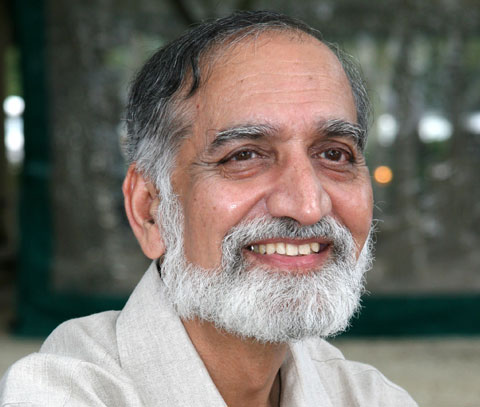 Mr Kiran Karnik
Mr Kiran KarnikBoard Member
Mr Kiran Karnik describes himself as a ‘public un-intellectual’, a non-academic with a strong interest in public policy and strategy. He is widely recognised for his work in the IT sector, as President NASSCOM from 2001 to 2008, and for helping to put Satyam Computers back on track – as Chairman of its government-appointed Board – after it suffered the biggest corporate fraud in India’s history. He has been on many key government committees, including the Scientific Advisory Council to Prime Minister, and the National Innovation Council.
Before his last full-time job in NASSCOM, Mr Karnik was CEO of Discovery Communications India (1995-2001) and launched Discovery Channel and Animal Planet in India and South Asia. As Founder-Director of Consortium for Educational Communication (1991-95), he oversaw production and transmission of UGC’s Countrywide Classroom TV programmes. Earlier, he spent over two decades in ISRO and was deeply involved in the use of space technology, especially for education and development, including the path-breaking Indo-US Satellite Instructional TV Experiment (SITE) and the Kheda TV project.
Mr Karnik is currently involved with a number of not-for-profit organisations in the fields of education and development, and is the honorary President of India Habitat Centre. He was a Director on the Board of Reserve Bank of India till September 2015, and currently chairs the Board of Reserve Bank Information Technology Private Limited. He also serves as an Independent Director on the Boards of a few other companies. He has contributed to, authored and edited many books, including “The Coalition of Competitors”, on NASSCOM and the IT industry. His latest book (“Crooked Minds”) is on innovation. He has also been a regular contributor to major national dailies.
Mr Karnik has been conferred many awards, including the Padma Shri.
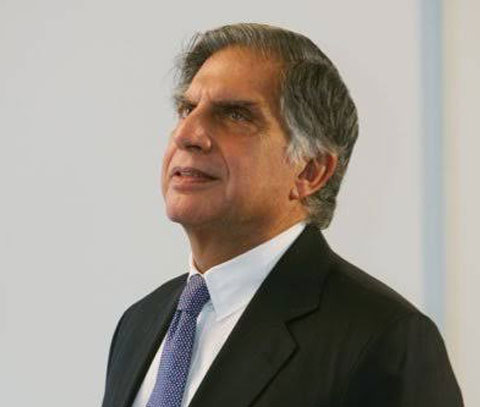 Mr Ratan N Tata
Mr Ratan N TataBoard Member
Mr Ratan Tata is Chairman Emeritus of Tata Sons. He has a degree in architecture with structural engineering from Cornell University, and has completed the Advanced Management Program from Harvard Business School. He is a member of the Alpha Sigma Phi fraternity.
Under his stewardship, the Tata Group acquired many companies which turned Tata from a largely India-centric company into a global business. Mr Tata is a member of the Prime Minister’s Council on Trade and Industry and is on the board of governors of the East-West Center, the advisory board of R&D’s Center for Asia Pacific Policy and serves on the program board of the Bill & Melinda Gates Foundation’s India AIDS initiative.
He has been honoured with the Padma Bhushan and the Padma Vibhushan, the country’s highest honours. Rockefeller Foundation conferred him with the Lifetime Achievement Award and he has been also appointed Knight Commander of the Order of the British Empire.
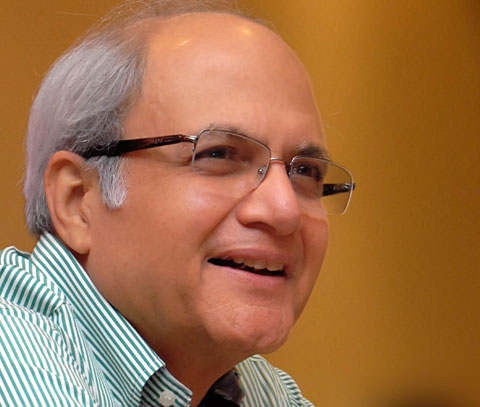 Dr Ajai Chowdhry
Dr Ajai ChowdhryBoard Member
One of the six founder members of HCL, Dr Ajai Chowdhry is currently Chairman of the Board of Governors of Indian Institute of Technology (IIT) Patna. He has been driving a vision of ‘IT for the masses’ and been part of several government committees working towards this goal. He is a Padma Bhushan awardee for his consistent contribution in building the IT industry of the nation, besides several accolades received for his key role in championing the cause of the domestic Indian IT market.
Dr Chowdhry has been conferred with Honoris Causa Doctorate of Science by IIT Roorkee and was also awarded a Honoris Causa (D. Sc.) by IIIT Jabalpur in recognition of his significant contribution to the Indian IT industry. Gifted with a pedant sense of entrepreneurship, he is presently the Board Member of the incubation centre at Indian Angel Network and IIT Delhi.
Dr Chowdhry has served as a member of the Advisory Council of Population Foundation of India and has guided the organisation in designing the transmedia serial, Main Kuch Bhi Kar Sakti Hoon.
 Dr Syeda S Hameed
Dr Syeda S Hameed Board Member
Dr Syeda S Hameed is a former member of the Planning Commission, Government of India. She is the Chairperson of the Dalit Foundation and the Faiz Centre, India, and the founder trustee of Women’s Initiative for Peace in South Asia and the Centre for Dialogue and Reconciliation. She has been the Chancellor of Maulana Azad National Urdu University, Hyderabad and a founder member of the Muslim Women’s Forum and South Asians for Human Rights.
Dr Hameed graduated from Delhi University. She holds a doctorate from the University of Alberta, Canada. She has taught at the University of Alberta and at the Lady Shri Ram College, New Delhi.
Among the books she has written is ‘Beautiful Country: Stories from Another India’. Dr Hameed was awarded the Padma Shri in 2007.

